Monthly Archives: June 2009
Turn Your Home Computer into a Web Server in 2 Minutes
Written by Amit Agarwal
You may find this technique useful even if you are not a very tech-savvy user.
 Before getting into the actual process, let’s look at a couple of real-world situations that explain why you may want to turn your home computer into a web server.
Before getting into the actual process, let’s look at a couple of real-world situations that explain why you may want to turn your home computer into a web server.
Situation #1. Say you have music MP3s, documents and other important files on the hard drive of your home computer. If you turn this home computer into a web server, you will be able to access all these files from office or any other Internet connected machine including your mobile phone.
Situation #2. You have some personal photographs that you want to share with other family members. You can either upload these pictures online to a site like Flickr or better still, just convert the computer into a web server. Now you can connect the camera to the computer, transfer the digital pictures to some designated folder and they’ll instantly become available to your friends and family anywhere in the world.
Situation #3. You want to host a website on the internet but the web hosting jargon like FTP, DNS, etc. is way too complex for you. The workaround therefore is that you setup a web server on your home computer (it’s easy) and then host a website in seconds without spending a single penny on external web hosting services.
Now if any of the above reasons look convincing enough, here’s how you can convert your Windows, Mac or Linux PC into a web server in less than two minutes – no technical knowledge required.
Go to labs.opera.com, download the Opera Unite software and install it. Congratulations, you are now running a web server on your machine and just need another minute to configure local file folders that you want to share with others over the internet.
Here’s an illustrated screenshot of the configuration panel – nothing technical here again.
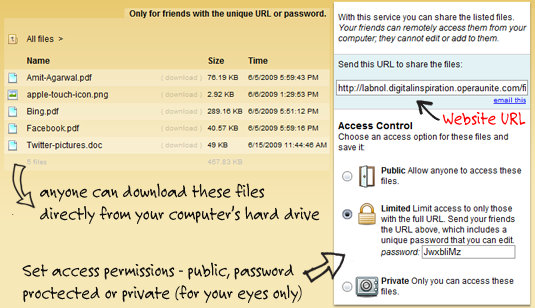
Start the Opera Web browser (yes, that’s also you web server now) and enable the Opera Unite service from the lower left corner. Now double click the File Sharing link and select the folder whose content you want to share on the web. Any file or folder inside this folder can now be accessed over the internet – you can either use a public URL or specify a password for private sharing.
The following screencast video has more detailed instructions on how to get started with Opera Unite or you may refer to the User Guide if you get stuck somewhere.
Opera Unite looks pretty useful but there are other services around that can also do pretty similar stuff. For instance, both PurpleNova and Dekoh Dekstop enable users share content on the Internet directly from the hard drive without having to upload it anywhere.
Update: It’s important to note that your computer must be in running state and also connected to the Internet for others to download files and web pages since Opera Unite streams content directly from your machine – it doesn’t upload or caches anything to its own servers. Give it a shot. [flickr]
The 5 Most Recognisable Gaming Icons Ever
Written by Hung-Su
![]()
Nike to sports, McDonald’s to hamburgers, Apple iPod to mp3 players; almost every major consumer industry has a handful of iconic companies that embody almost everything that industry is about. But what about the video gaming industry? An industry that has existed for decades, is the love of schoolkids everywhere and whose subject matter sparks the interest of art galleries, movies, the Guinness Book of World Records, must have icons of its own!
This list hopes to pick out the icons that not necessarily look the coolest or the most beautiful, but are recognisable and punchy like the Nike tick.
Number 5: The NES Controller
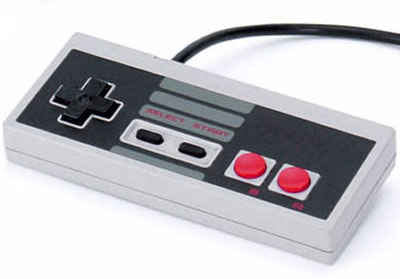
Everyone who plays games knows what the NES controller looks like, even if they haven’t used one! This highly unergonomic but punchy device began a revolution in gaming for the masses. While not the first gamepad, it was the first to take off and become popular.
Prior to the NES controller, gamers had two button joysticks, remote controls, even keyboards with teletype printers to receive game messages. The ease with which we kick back and relax in our couches with our wireless controllers was done almost as well two decades ago with this controller. In addition, wIth its bold black Dpad and bright red button design, it definitely stood out from the pack, and its simple image remains burned into the heartfelt memories of many millions of veteran gamers today.
Number 4: The Space Invader

Just like every other popular icon, the Space Invaders arcade game concept is one that has been burned into the public consciousness. Everyone knows that you’re a little ship that shoots these guys. What is most interesting about the space invader however, is that it is the only icon in this list…with multiple forms.
Few people have a solid idea of what the Space Invader looks like, but everyone knows a space invader when they see one. This room for interpretation has allowed the Space Invader to literally invade our world, from crop circles, memes, even underwear! A truly iconic piece of gaming history that is worthy of this list.
Number 3: The T-shaped Tetris block

In spite of its relatively tender young age of 23, Tetris is a game that feels as old as time. It has graced almost every gaming platform and operating system conceived since its birth, and whose concept is so simple it makes an ideal practice piece for fledgling gaming programmers.
It has a mental quality named after it, features prominently in Japanese television, and may even cure post traumatic stress! More importantly though, of all the different tetrominoes, why the T-shaped one?
Because it’s a T which stands for Tetris!
Number 2: Mario Mario

Quite possibly the most popular of video game icons today, Mario has been around for so long and invaded so much of our culture, Nintendo may have created someone more badass than Chuck Norris! Mario has appeared in hundreds of games crossing multiple genres from beat-em-ups, racing and even RPGs, creating some of the most memorable games in videogame history.
The Mario theme is one of the best known songs in gaming history, Mario’s italian accent is one of the most distinctive voices in gaming history, and even his game’s sound effects have more punch and notoriety than the rev of a Harley Davidson! What icon could possibly beat that?
Number 1: Pacman

Now this, is an icon. Everything an icon requires – simplicity, distinctiveness, global recognition, if there’s any icon to represent all of gaming, it’s Pac-Man. But you may protest, why did he beat Mario? First, unlike Mario, Pac-man is so simple that he could actually be a logo – not a mascot! Second, while many may think of Mario to represent all of gaming, he can’t be because he’s Nintendo’s mascot!
Playstation, Xbox, PC, mobile and every other form of gamer needs an icon as well, and Pac-man is the only icon with enough character and distinctiveness to do so…without any loyalty to a specific platform.
The Story of the Beatles in Two Minutes
12 Simple Ways To Impress Your Boss And Everyone Else
Written by ItStartsWith.Us
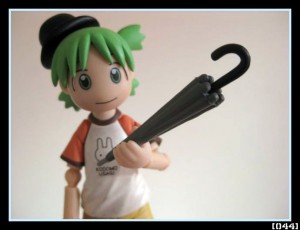 Just about everyone wants to do great work, look good in the eyes of their boss, and earn the respect of their peers. In my 15-year career I’ve worked at a large number of different companies and held a wide variety of positions. I’ve seen how this works from every angle, so I thought I’d share some thoughts on what’s worked for me and what I’ve learned along the way.
Just about everyone wants to do great work, look good in the eyes of their boss, and earn the respect of their peers. In my 15-year career I’ve worked at a large number of different companies and held a wide variety of positions. I’ve seen how this works from every angle, so I thought I’d share some thoughts on what’s worked for me and what I’ve learned along the way.
Two things before we get started: First, the theme of ItStartsWith.Us is to focus on ways that we can make a positive impact in the lives of the people around us. I hope that some of these ideas will help you do just that. But please keep in mind that using these tips to try to get ahead at your job isn’t what it’s all about. You’ll start to see a huge benefit when you treat everyone like this, not just the people you want to impress. It took me a while to see, but I now realize that living this way (for others) makes me a better person, and that’s more valuable than any job advancement.
Secondly, I chose the word “simple” in the title because none of these tips are very complicated. They’re easy to understand, and anyone can begin using them immediately. They are not necessarily easy to implement, however. Many of them may require a dramatic shift in the way you act, or the way you think about yourself in relation to other people. I’ve finally accepted the fact that there are no quick fixes out there. If you want to see a big result, you have to be ready to put in some hard work. The good news is, the more time you spend doing these kinds of things, the less it feels like work, and the more if feels like a natural part of who you are. And once you get there, the rest becomes easier, and the rewards start coming in.
So here we go.
-
Care about people
 I put this one first because it’s the foundation for everything that comes after. Caring about others is an absolute necessity. If you don’t care about them, and you’re only in this for yourself, people will know. They can spot insincerity a mile away. If you’re labeled as insincere, it won’t matter how much you do for everyone; they’ll always be assuming you have an ulterior motive, and you’re just trying to work an angle to come out on top. The only way any of this will work in the long run is if you are truly interested in seeing other people succeed, and you do your best to help them along the way.
I put this one first because it’s the foundation for everything that comes after. Caring about others is an absolute necessity. If you don’t care about them, and you’re only in this for yourself, people will know. They can spot insincerity a mile away. If you’re labeled as insincere, it won’t matter how much you do for everyone; they’ll always be assuming you have an ulterior motive, and you’re just trying to work an angle to come out on top. The only way any of this will work in the long run is if you are truly interested in seeing other people succeed, and you do your best to help them along the way.
If this doesn’t sound like your cup of tea, you may as well stop reading this article right now – it won’t help you. Do us both a favor and go play some Flash games online (my kids highly recommend Dino Run). But if you do care about people, or at least want to make an honest effort to do so, read on.
-
Always be honest
 This is the second foundational element. The most valuable resource you have with others is their trust, and it’s much easier to lose than it is to gain. This is a lesson we’ve all learned from childhood on up, yet we continue to tell lies or half-truths to make ourselves look better in certain situations. Don’t do this. Ever.
This is the second foundational element. The most valuable resource you have with others is their trust, and it’s much easier to lose than it is to gain. This is a lesson we’ve all learned from childhood on up, yet we continue to tell lies or half-truths to make ourselves look better in certain situations. Don’t do this. Ever.
If you have a habit of lying about big things, then obviously you have some work to do, and you should get on it. But what I’m mostly talking about here are the small things. For instance, if you mess up with someone, and fail to meet a commitment you promised them, don’t try to make excuses to cover it up. Apologize and ask what you can do to make it right – you’ll be respected for it. Doing anything else will show people that you’re willing to say whatever’s necessary to avoid the consequences of your actions. And if they see you doing that with small things, it’s a solid bet that they assume you do it with big things as well.
You can sometimes break the rules, but you can never bend the truth. Losing trust is the worst thing that can happen, because it makes all the other things you do nearly worthless in the eyes of others.
-
Speak your mind
 If you’re always honest, you shouldn’t have much of a problem speaking your mind when the situation warrants. This doesn’t mean you have to talk all the time (I’m one of the quieter guys in most of my meetings) . . . you have to determine when it’s important to talk, and when it’s okay to stay quiet. But if you’re always honest, people will know that when you do speak, you mean what you say.
If you’re always honest, you shouldn’t have much of a problem speaking your mind when the situation warrants. This doesn’t mean you have to talk all the time (I’m one of the quieter guys in most of my meetings) . . . you have to determine when it’s important to talk, and when it’s okay to stay quiet. But if you’re always honest, people will know that when you do speak, you mean what you say.
Here’s an example. The first time I wrote a big email to the CEO of my large company, it was to criticize him for something he said at an all-company meeting. Since this was my first major interaction with him, I was taking a big risk – and I’m not gonna lie, some of the things I’m talking about doing will sometimes put you at risk. But when you don’t put yourself out there and take a chance, you don’t get a shot at the big payoff.
Because my CEO is a great guy, he thanked me for my feedback and took it under consideration. The next time I emailed him, it was in high praise of something he did at an all-company meeting. What do you think his first thought was when he saw another email from me with the subject “Feedback?” Probably nothing good. But when he opened it and saw my sincere thanks and appreciation for his recent actions, I’ll bet he realized something: that this guy is not a suckup, and will say what he thinks, no matter what the situation. And that is a valuable relationship to have with your leaders. Going forward, as long as you continue to remain honest and speak your mind, you’ll be building up trust with each interaction.
One caveat to this point: you must be aware of the situation when speaking your mind. No one likes to be called out in front of their peers, so if you have criticism to give, do it in private, and be sensitive to the feelings of the person you’re talking to, especially if it’s a high-level leader who may not be used to receiving it.
-
Be respectful – with an edge
 You always need to show the proper respect for anyone, be it your boss, your spouse, your friend, or even a stranger. That’s a given. But when you start giving your boss too much deference, and turn him into a demi-god, it doesn’t help anything. He’s just a person who happens to be in a higher position than you. And if he’s the kind of guy who enjoys it when people suck up to him, he’s probably not the kind of guy you need on your side anyway. I’d rather have the rest of the office backing me up in that situation.
You always need to show the proper respect for anyone, be it your boss, your spouse, your friend, or even a stranger. That’s a given. But when you start giving your boss too much deference, and turn him into a demi-god, it doesn’t help anything. He’s just a person who happens to be in a higher position than you. And if he’s the kind of guy who enjoys it when people suck up to him, he’s probably not the kind of guy you need on your side anyway. I’d rather have the rest of the office backing me up in that situation.
As a boss, I can tell you that I hate it when people suck up to me. It automatically drops you a few notches on my “trustworthy” list. Why aren’t you trustworthy? Because I can see that you’re willing to compromise your true thoughts and feelings to be viewed in a more positive light. And that tells me that you’re in this for yourself, and I can’t trust you to be someone who will help me or another team member with something that’s important to us.
When you’re dealing with people who are in a higher position than you, remember that it’s not always what you say, but the intent behind it. I get away with saying a lot of things to senior leaders that other people can’t say. This is because I’ve built up a reputation as someone who always works hard to help others succeed. They know that I’m here to help support them, and if I have something that I really disagree with them about, I’ll be sure to let them know, and not go behind their backs. They trust me, so I can be free to joke around a little more, and have a bit more of an edge than most people, as long as I stay aware of the current environment and don’t overstep any bounds of respect. If you can get to the point where you can tell your boss that he’s a jackass, and he laughs about it, you’re in a good spot.
-
Ask for help
 If you don’t know what you’re doing in a certain situation, don’t pretend like you do. Admit your ignorance and ask for help from someone who knows what they’re doing. I see two benefits to doing this. First, it helps you learn something new. Second, and more importantly, it makes someone else feel important. Their interaction with you, where they were able to help you out and feel good about their own knowledge and generosity at the same time, may well be the highlight of their day. Give them that gift, and pay attention to the friendliness and respect you’ll get in return. This is especially true if you’re in a leadership position. Never be too proud to learn from anyone else in the company. In fact, I’ll go so far as to say that there’s always at least one thing you can learn from everyone you meet – so don’t take anyone for granted.
If you don’t know what you’re doing in a certain situation, don’t pretend like you do. Admit your ignorance and ask for help from someone who knows what they’re doing. I see two benefits to doing this. First, it helps you learn something new. Second, and more importantly, it makes someone else feel important. Their interaction with you, where they were able to help you out and feel good about their own knowledge and generosity at the same time, may well be the highlight of their day. Give them that gift, and pay attention to the friendliness and respect you’ll get in return. This is especially true if you’re in a leadership position. Never be too proud to learn from anyone else in the company. In fact, I’ll go so far as to say that there’s always at least one thing you can learn from everyone you meet – so don’t take anyone for granted. -
Plan to wing it
 This sounds a bit contradictory, I know. We usually want to control our circumstances as well as we can to make sure everything works out in the best possible way for us. But the fact of the matter is that we’re rarely as in control as we think we are, and occasionally we’re thrown into complete chaos. In fact, we’re quite often judged more on how we handle the curveballs thrown at us, so it’s good to have a plan in place for dealing with them.
This sounds a bit contradictory, I know. We usually want to control our circumstances as well as we can to make sure everything works out in the best possible way for us. But the fact of the matter is that we’re rarely as in control as we think we are, and occasionally we’re thrown into complete chaos. In fact, we’re quite often judged more on how we handle the curveballs thrown at us, so it’s good to have a plan in place for dealing with them.
I like to prepare for these situations by practicing once in a while. Take a controlled situation that you’re going into, and resist the urge to plan every detail. Decide that in this instance, you’re going to wing it, because the worst that can happen is not that bad. Voluntarily practice thinking on your feet, so the next time you’re forced to do so, you don’t freak out. People are always watching you, and if you can handle unexpected and difficult situations gracefully and effectively, your perceived (and actual) value will soar.
-
Work hard to help others
 Everyone knows that there is incredible value in hard work. But when you work hard to help other people, that value is multiplied. If you make it one of your goals to help others achieve their goals, you’ll go through life being recognized as a great worker, but more importantly, you’ll also be seen as someone who cares about others. This will do wonders for your own attitude and personal satisfaction, but in addition to that, it will cause people to think of you first when they want to work with someone. And having everyone in the company wanting to work with you is a great card to have in your deck. [This comes from one of my favorite posts.]
Everyone knows that there is incredible value in hard work. But when you work hard to help other people, that value is multiplied. If you make it one of your goals to help others achieve their goals, you’ll go through life being recognized as a great worker, but more importantly, you’ll also be seen as someone who cares about others. This will do wonders for your own attitude and personal satisfaction, but in addition to that, it will cause people to think of you first when they want to work with someone. And having everyone in the company wanting to work with you is a great card to have in your deck. [This comes from one of my favorite posts.] -
Ask questions and look stuff up
 Don’t be that clueless guy in the meeting who just nods like he knows what’s going on. If I’m talking and I see that going on, I’m always tempted to directly challenge that person on their knowledge of the topic. Of course I don’t, because I’m not in the business of making people look foolish, but for the love of Pete, if you don’t understand something, ask a clarifying question.
Don’t be that clueless guy in the meeting who just nods like he knows what’s going on. If I’m talking and I see that going on, I’m always tempted to directly challenge that person on their knowledge of the topic. Of course I don’t, because I’m not in the business of making people look foolish, but for the love of Pete, if you don’t understand something, ask a clarifying question.
I do this all the time. Sometimes I’m ignorant and need to be educated, and sometimes I catch the presenter being unclear or flat-out wrong. Either way, your boss will respect you for it. If you don’t have the confidence to ask the question during the meeting, follow up with the person inpidually, or look it up on your own. Do not walk away without understanding the topic or being prepared to learn about it. I was home-schooled through eighth grade, and I think the line my mom used the most was “Look it up.” What kind of teacher is that? Well, she’s the kind of teacher who helped me understand that we have all the knowledge we can handle readily available to us, and usually the only thing stopping us from learning is laziness.
One final thought: when you do look stuff up and learn something, share it with the group. Don’t hoard information. Ever.
-
Do what you’re not supposed to do
 You heard me right. Stop following all the rules. Rules exist mainly so that people don’t have to think about the right thing to do all the time – they can just follow the rules and pretty much be okay. And that’s fine for most people, but if you really want to stand out, take the time to figure out which rules can be bent, and which can be broken. But don’t just go around breaking rules and expecting good things to happen – be very deliberate in when, how and why you break a rule, and make sure it’s something that benefits other people, not yourself.
You heard me right. Stop following all the rules. Rules exist mainly so that people don’t have to think about the right thing to do all the time – they can just follow the rules and pretty much be okay. And that’s fine for most people, but if you really want to stand out, take the time to figure out which rules can be bent, and which can be broken. But don’t just go around breaking rules and expecting good things to happen – be very deliberate in when, how and why you break a rule, and make sure it’s something that benefits other people, not yourself.
If you break the rules for yourself, even if it’s for a perfectly legitimate reason, you’re viewed as a selfish, pompous, I’m-better-than-you-type person. But if you break the rules to help out other people, even for something small, you’re viewed as an altruistic, charitable person who goes to great lengths to help others.
Here’s an example of what I mean: I was at an all-department meeting at work, and we were served lunch. The buffet line was up near the presenters, and everyone had had their lunch and dessert already – the presenters were in full swing. I was at one of the tables in the back. I had a little bit of a hankering for another brownie, but the rule says that I shouldn’t go up near where they’re speaking to go grab one – it could be viewed as rude. So I didn’t go. Now don’t get me wrong, I’ve built enough of a reputation that if I wanted to go up, people wouldn’t think twice about it – that’s just me being me – not one to observe proper etiquette all the time. But in this case I had decided to stay put. A young intern at my table, however, mentioned that she would love another brownie, but was afraid to go up and get one. I waited a moment, then walked up there, grabbed a brownie (with the tongs), and put it on a plate. I walked back to the table, sat in my place, and wordlessly slid the brownie plate over to her. I used up a tiny bit of my political capital by walking up near the presenters, but think about how much of a positive reputation I gained from the seven other coworkers at my table, along with anyone else who saw what I did. This is the kind of rule-breaking I’m talking about.
Know what you’re doing and why you’re doing it at all times, even if it may look strange to people who don’t know the whole story. You gain two things by approaching life this way. 1) You’re looked at in a positive light by those whom you help (and those who see you help others). 2) If you consistently break social norms in small, relatively inconsequential ways, people just note that you’re “a little odd”, and ascribe anything off-color you do to that mental model. If you’re okay with people thinking this way about you, it frees you up to make a lot of unintentional faux pas in the future and come away unscathed. It also frees you up to try a variety of social experiments, but that’s a different article. 🙂
-
Give people more than they expect
 Seriously, this is way easier than it sounds. I do this all the time in very small ways, but they eventually add up. For instance, if someone asks me to provide them with some data, I’ll email it over to them, but I’ll also throw in a little note with a few related links that may also help them with their project. I’m pretty good at finding things online, and it doesn’t take me very long. For my extra two minutes of work, I may save them 30 minutes of additional searching. And even if it doesn’t help them this time, they’ll remember that I gave them more than they asked for, and that I’m a really helpful guy. If you can consistently produce small, positive interactions with people, pretty soon their image of you will begin to include all the things you want to be known for. [More on this topic here.]
Seriously, this is way easier than it sounds. I do this all the time in very small ways, but they eventually add up. For instance, if someone asks me to provide them with some data, I’ll email it over to them, but I’ll also throw in a little note with a few related links that may also help them with their project. I’m pretty good at finding things online, and it doesn’t take me very long. For my extra two minutes of work, I may save them 30 minutes of additional searching. And even if it doesn’t help them this time, they’ll remember that I gave them more than they asked for, and that I’m a really helpful guy. If you can consistently produce small, positive interactions with people, pretty soon their image of you will begin to include all the things you want to be known for. [More on this topic here.] -
Get organized
 How are you going to do all these great things for everybody if you’re not organized? There are a thousand different ways to do it, and I can’t help you choose the right one. I have a habit I picked up when I used to do some fiction writing – I carry a miniature notepad and pen around in my pocket at all times. This helps me capture any idea, question or task that may be important. Once you start doing it, it’s really cool to know that you’re not missing anything anymore. Of course, you still need a good system to help you process everything. For that I recommend David Allen’s “Getting Things Done.” I intentionally didn’t link to the book on Amazon, because I want to make sure you know that I make no money by promoting this book. It’s just a method that has worked well for me, and it may be a good starting point for you. Staying organized makes doing all this extra work a lot easier.
How are you going to do all these great things for everybody if you’re not organized? There are a thousand different ways to do it, and I can’t help you choose the right one. I have a habit I picked up when I used to do some fiction writing – I carry a miniature notepad and pen around in my pocket at all times. This helps me capture any idea, question or task that may be important. Once you start doing it, it’s really cool to know that you’re not missing anything anymore. Of course, you still need a good system to help you process everything. For that I recommend David Allen’s “Getting Things Done.” I intentionally didn’t link to the book on Amazon, because I want to make sure you know that I make no money by promoting this book. It’s just a method that has worked well for me, and it may be a good starting point for you. Staying organized makes doing all this extra work a lot easier. -
Whatever you do, do it with a touch of “you”
 I cannot stress this enough: Know who you are, and BE THAT PERSON. If you’re funny, don’t try to be too serious. If you’re serious, don’t try to be too funny. Look for ways that you can work in the things you’re good at, and stay under the radar when you’d be forced to play your weakest hand. Don’t try to fix all your weaknesses – that’s a losing game. Just mitigate any ill effects from those, and then capitalize on your strengths. The point is to be genuine and memorable in a positive way, and you can best accomplish that by doing what you’re good at.
I cannot stress this enough: Know who you are, and BE THAT PERSON. If you’re funny, don’t try to be too serious. If you’re serious, don’t try to be too funny. Look for ways that you can work in the things you’re good at, and stay under the radar when you’d be forced to play your weakest hand. Don’t try to fix all your weaknesses – that’s a losing game. Just mitigate any ill effects from those, and then capitalize on your strengths. The point is to be genuine and memorable in a positive way, and you can best accomplish that by doing what you’re good at.
For me, one of the personal touches I put on email correspondence is by communicating in funny pictures, even to people I don’t know. I have a huge repository of images saved by the name of the idea they represent, and it’s become second nature to pop these into emails as I go. This doesn’t take me any extra time, but it makes my day more fun, and I’ve gotten numerous responses about how the recipient broke out into laughter during a meeting, or otherwise appreciated the gesture. Little things like that are what make you unique . . . don’t be afraid to use them to become memorable as well.
There you have it, folks. I know that was a lot of information to cover, but it’s some important stuff. You probably came to this page looking for some quick and easy things you could do to look better to your boss, but here’s the beauty of this system: if you actually do these things, you’re going to look better to everybody. And not in any kind of tricky or gimmicky way, either. You’ll look better because you’ll be better. If you want to be known for all the positive things mentioned in this article, the only way to achieve that goal is to actually be that kind of person. There are no two ways about it, and there is no substitute for hard work.
I hope this article helped give you some ideas about things you can do to make a positive impact in the lives of the people around you. If you have more ideas to share or examples of other things you do, or even if you disagree with some of these tips, I’d love to hear what you think. Please leave a comment below, and I’ll be sure to respond.
Good luck at work (and life) tomorrow!
Photo Credits:
KayVee.INC, Pink Sherbet Photography, jimbowen0306, Kenny Maths, extranoise, D3 San Francisco, from a second story., m o d e’s photostream, Oberazzi, khinetheinsoe, kamome, orangeacid, PakyuZ
Best Wedding Invite. Ever.



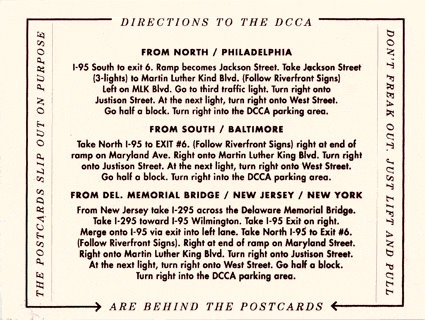
BONUS:

60 years after Orwell wrote 1984…almost reality
Written by Robert Harris
Nineteen Eighty-Four was published in London on Wednesday, June 8, 1949, and in New York five days later. The world was eager for it.
Within 12 months, it had sold around 50,000 hardbacks in the UK; in the U.S. sales were more than one-third of a million. It became a phenomenon.
Sixty years later, no one can say how many millions of copies are in print, both in legitimate editions and samizdat versions. It has been adapted for radio, stage, television and cinema, has been studied, copied and parodied and, above all, ransacked for its ideas and images.

Chilling: The movie 1984, which was made that year, helped bring the work to an even wider audience
As I write, the Mail is reporting that ‘town halls are routinely using controversial Big Brother surveillance laws to spy on their own employees’; the Los Angeles Times is describing a Republican Party consultant as ‘a master of the black art of political newspeak’; The Village Voice is citing ‘a ripe example of doublethink’; and The Guardian is profiling a community leader ‘attacked as part of the PC thought police’.
I could cite hundreds more examples. Nineteen Eighty-Four may not be the greatest novel ever written, but it is certainly the most influential. Even at the time, people knew that something remarkable had occurred.
‘Momentous’, was how Lionel Trilling in The New Yorker hailed its arrival.
Nevertheless, publication day seems to have gone unmarked by any kind of celebration by George Orwell, the author – not surprisingly as he was that day cooped up alone in a stuffy wooden hut, 15ft by 12ft, in a TB sanatorium near Stroud in Gloucestershire, in the throes of being killed by his own creation.
‘I began to relapse about the end of September,’ he wrote to a friend. ‘I could have done something about it then, but I had to finish that wretched book, which, thanks to illness, I had been messing about with for 18 months and which the publishers were harrying me for.’
Working on the Hebridean island of Jura in the cold and damp, the worst possible climate for tuberculosis, Orwell had produced a manuscript illegible to anyone save its author.

Big Brother: John Hurt as Winston Smith in the movie
There was no point in sending it to London as no one could decipher it. Unable to find a local secretary, barely able to walk and sensing that his time was running out, he was therefore obliged to type it himself – 4,000 words a day, seven days a week – mostly done propped up in bed.
The effort produced excruciating pain and high temperatures.
‘It’s a ghastly mess now,’ he moaned to another friend, ‘a good idea ruined.’
A week before he finished typing he was still unsure what to put on the title page: ‘I am hesitating between Nineteen Eighty-Four and The Last Man In Europe.’
Would the novel have achieved such fame if it had been called The Last Man In Europe? Somehow, one doubts it. On such toss-of-the-coin decisions does literary immortality depend.
One is supposed to separate a work of art from the circumstances of its creation, the protagonist of a book from the character of its author. In the case of Nineteen Eighty-Four, this is futile.

George Orwell: The author died six months after 1984 was published
Winston Smith – grey, thin, unable to climb the stairs without stopping to rest, doubled up every morning by ‘a violent coughing fit’ that leaves him lying breathless on the floor – is plainly Orwell.
And the often-remarked-upon ‘nightmarish’ atmosphere of the novel, in which the figures and landscape seem distorted, as if through a fish-eye lens, and the prose jangles with fragments of half-forgotten childhood tunes and nursery rhymes – all this plainly owes much to the hallucinatory fevers that accompany the ravages of tuberculosis.
Orwell never recovered from the effort of composition. He died six months after publication, aged 46.
‘The tragedy of Orwell’s life,’ wrote his friend Cyril Connolly in The Sunday Times in 1961, ‘is that when at last he achieved fame and success he was a dying man and knew it. He had fame and was too ill to leave his room, money and nothing to spend it on .. . he tasted the bitterness of dying.’
As a consequence, a heroic, almost mythic quality quickly came to surround Nineteen Eighty-Four. Imagine if Orwell had recovered from TB and had gone on to become a famous figure on television in the Fifties and Sixties – as he easily might have done, given his talent as a broadcaster – delivering trenchant opinions in his high-pitched Etonian accent (of which, perhaps mercifully, no recording survives).
Nineteen Eighty-Four would still have been the same book. But would it have had the same aura of unassailable posthumous integrity that Orwell’s early death bestowed upon it?
As it is, it remains perfectly crystallised in time: safely immune to any subsequent second thoughts or revisions that might have occurred to Orwell during the controversies of the Cold War.
This is important, I think, both to the reputation of Orwell and to the status of his greatest work. Because Orwell was so deeply involved in contemporary politics it is hard to see how he could have avoided becoming drawn into a rolling controversy about what he meant to say, or not say, in his fiction and the answering of such questions invariably diminishes the power of a work of art.
Indeed, one week after publication, Orwell’s publisher, Fredric Warburg, travelled to his author’s bedside to take down a statement on precisely this issue.
Orwell wished to counter the impression, already especially prevalent in America, that Nineteen Eighty-Four, coming four years after Animal Farm, was intended as an attack on the Left in general and the British Labour Party in particular.
The United Automobile Workers Of America asked Orwell for a statement of his intentions and Orwell obliged, in what was to be his last public utterance: ‘My novel Nineteen Eighty-Four is not intended as an attack on socialism, or on the British Labour Party . . . I do not believe that the kind of society I describe necessarily will arrive, but I believe (allowing of course for the fact that the book is a satire) that something resembling it could arrive.
‘I believe also that totalitarian ideas have taken root in the minds of intellectuals everywhere, and I have tried to draw these ideas out to their logical consequences.’

The chilling idea of Big Brother has now become a common phrase
Clearly, much of Nineteen Eighty-Four is a satire on Stalinism, from the physical description of Big Brother’s face (‘black-haired, black-moustachio’d, full of power and mysterious calm’) to the split in the all-powerful ‘Party’ led by the Trotsky figure, Emmanuel Goldstein, who was branded the hated ‘Enemy of the People’.
And if that were the limit of Orwell’s ambition – to describe England as a Stalinist state – the novel would be regarded today as a brilliant period piece about the horrors of communism, comparable perhaps to his friend Arthur Koestler’s Darkness At Noon: an important work, still read but confined to a limited audience.
However, what sets Nineteen Eighty-Four apart – the difference in ambition which means that millions of people who have never read a word of Orwell nevertheless know what ‘Orwellian’ means – is that it parodies the totalitarian impulse in general.
The original ideology behind this impulse may be communist or fascist, or nationalist or corporate or institutional, but the methods by which it proceeds are in each case the same: the stamping out of the capacity for inpidual thought and freedom, not merely by physical force but by a complete denial of privacy and by the control of all information, even to the extent of policing the language in which thoughts are expressed.
In the world of Nineteen Eighty-Four, ideology is irrelevant. The story picks up where Animal Farm left off. Men and pigs have now become fully interchangeable. Power, administered by a cadre of technocrats, has become an end in itself.
The planet is pided into three continuously (or apparently) warring super-states: Oceania, Eurasia and Eastasia. Given how Churchill, Roosevelt and Stalin had pided up the world between them at their wartime conferences only a few years previously, this vision did not seem entirely fantastic.
Orwell also drew heavily on the writings of the American Trotskyist turned conservative, James Burnham, author of The Managerial Revolution and The Machiavellians. His 1946 summary of Burnham’s theories reads like an outline for Nineteen Eighty-Four:
‘All historical changes finally boil down to the replacement of one ruling class by another. All talk about democracy, liberty, equality, fraternity, all revolutionary movements, all visions of Utopia, or “the classless society”, or “the Kingdom of Heaven on earth”, are humbug (not necessarily conscious humbug) covering the ambitions of some new class which is elbowing its way to power …
‘The new “managerial” societies will not consist of a patchwork of small, independent states, but of great super-states grouped round the main industrial centres in Europe, Asia and America.
‘These super-states will fight among themselves for possession of the remaining uncaptured portions of the earth, but will be unable to conquer one another completely.’
Such was the way the world seemed to be heading in the Forties; such is the world of Nineteen Eighty-Four. It is not to detract from Orwell’s achievement to point out 60 years later that he actually got much of this profoundly wrong.
The surpluses of production in capitalist countries were not used up in continuous warfare but were largely perted to consumer goods; the same has happened even in formerly communist countries.
There are not three great power blocs any more, but two, or four, or one, or none, depending on how you choose to look at it. In the internet age, censorship of images, language and thought have never been harder for governments to control.
Above all, Orwell failed to predict that religious belief would prove such a strong force in the future – a blind spot shrewdly noted by Evelyn Waugh, who lived near Orwell’s sanatorium and who visited him there at least twice around the time the novel appeared.

Television programme: The idea of Big Brother has been exploited in the reality TV show, with Davina McCall as host
‘What makes your version [of the future] spurious to me is the disappearance of the church,’ Waugh wrote to him after reading it in July 1948.
‘Disregard all the supernatural implications if you like, but you must admit its unique character as a social and historical institution. I believe it is inextinguishable.’
The possibility that the all-powerful rulers of Eurasia might one day be toppled by a Polish pope, or that the oil supplies of Oceania might be threatened by fundamentalist Islam, lies far outside the materialist logic of Nineteen Eighty-Four.
But, mercifully, one does not read a novel with a checklist in hand to tick off the accuracy of its predictions. One reads it for its characters: to experience the world they inhabit and to discover what will happen to them next.
Curiously enough, Orwell was probably a better journalist and essayist than he was a novelist – in fact, he is arguably the best journalist and essayist in the English language.
Yet if he had written Nineteen Eighty-Four as a work of non-fiction it would have been forgotten years ago. It was by using his creative imagination to transmute his ideas into fiction that Orwell produced something timeless.
Nineteen Eighty-Four is a standing rebuke to all those who think history or biography can ever be superior to the novel. Big Brother, the Thought Police, Newspeak, Room 101, telescreens, Doublethink, the Two-Minute Hate, the Ministry of Love, 2+2=5, Airstrip One, unperson – one has only to list the words to realise how central Nineteen Eighty-Four has become to our collective imagination.
But what put the ideas there in the first place, and what keeps them there still, is the story of Winston Smith and his doomed love affair with Julia, the girl in the oily overalls who works on the novel-writing machines in the Fiction Department.
The frail, hysterical, cowardly, misogynistic (‘he disliked nearly all women and especially the young and pretty ones’) Winston, with his bad chest and varicose veins, is one of the most unlikely heroes in modern fiction, and yet also one of the most compelling, and by making us believe in him Orwell makes us believe in his fictional landscape.
He does this with the most wonderful economy and clarity (‘good prose is like a windowpane,’ he once maintained), most memorably perhaps in the famous scene in which the lovers are surprised in bed by the Thought Police: “‘We are the dead,” he said. “We are the dead,” echoed Julia dutifully.
‘”You are the dead,” said an iron voice behind them.”
No wonder one of the last letters Orwell received was from Sidney Sheldon, the screenwriter and best-selling novelist, who was anxious to buy the dramatic rights.
From its arresting opening line onwards, Nineteen Eighty-Four functions as an extremely proficient piece of popular entertainment. It has tension, surprises and a good plot. Reading it is a pleasure, not a chore.
In an era when so much serious fiction seems designed merely for the author’s own gratification, or at best for a limited literary coterie, here is a novel with exactly the opposite intention. Orwell’s painfully tapped- out typescript (flimsy top copy and two carbons) left his hands, went out into the world and changed it.
It performed the signal service of nailing for ever certain tricks and tendencies of the ruling classes. It set us on our guard. Sixty years on, that is an achievement worth celebrating.
- This is the introduction to the official 60th anniversary edition of Nineteen Eighty-Four
7 Pieces of Advice on Picking Your New Facebook User Name
Written by Mike Pomranz
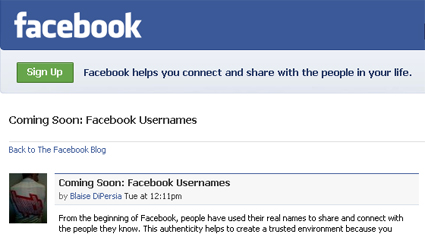
Like the Oklahoma Land Run of 1889 before it, Saturday, June 13th at 12:01 a.m. EDT will be one of the most important moments in the history of all of time.
At that exact moment, social networking site Facebook will allow users to register dedicated usernames, meaning you can finally have a URL for your profile that will make sense to other human beings. Won’t your business card look that much cleaner!
But be careful. This is a once in a lifetime opportunity. Here are some helpful pointers to consider before you choose.
- Make sure you’re logged on right at 12:01. In the past, being social meant that you would probably be out on a Friday night. Not anymore! In modern times, the best way to network socially is to make sure you are hunched over your computer all evening on a summer weekend.
- If your name sucks, grab a better one. You can always legally change your real name in court, but once you choose your Facebook username “you won’t be able to change or transfer it.” Ever! In fact, it may save time if you prepare the necessary legal forms to change your name to whatever handle you get in advance.
- Try to grab a celebrity name or important handle first. Remember when Madonna got into that fight over the website Madonna.com. You know why that happened? Because the guy who owned Madonna.com was a genius! You know how many free copies of Dianetics you can negotiate if you’re the first to grab the username “TomCruise”! You’ll thank me later in your deposition.
- Have a backup plan. Alright, Steve. I know you have your heart set on www.facebook.com/steve, but you may want to get your steno pad out and start jotting down some alternatives. Oh, your friends call you “Steve-o”? Great! Keep thinking.
- Be consistent. They’ve yet to diagnose it, but “web-schizophrenia” may eventually be a serious psychological problem. If your Gmail account, doesn’t match your Twitter, doesn’t match your Facebook, you might as well add your name to a terrorist watch list, ’cause you’ve got identity issues.
- Don’t take Facebook’s suggestion. What is this? 2001? No. It’s 2009. We don’t let some HAL-wannabe boss us around. I’m sure Facebook is gonna suggest I take “mike.pomranz”. Ha. I’d rather take “screw.you.facebook.pomranz” than take orders from a machine!
- Be happy with what you get. Remember how proud you were back in high school when you picked up the AOL screenname “BluntSmoka420420”? It’s estimated that Facebook has 15 trillion users and growing. Just be happy they were willing to give you a handle at all! You never complained when your username was “635712833”.
If you follow these steps, I guarantee that you will be happy with your choice in username for at least the next 14 month that it takes for your interest in using Facebook instead of the unforeseen newest social networking trend to peter out.
7 Things Electronics Salespeople Won’t Tell You
Written by Sharon Vaknin
Going to a retail store for consumer electronics purchases can be both exciting and frustrating. After working at Best Buy for two years, I have a few opinions to share that you might want to consider before your next shopping trip.
1. We have no formal training in the field of consumer electronics.
Upon transferring to the computer department from home theater, I expressed concern to the manager: “Will there be time for someone to train me on laptops/desktops? What do these specifications mean?” His reply was simple: “Just do your best. A good salesperson can just read the labels and compare specs.” Ouch.
Salespeople are not necessarily experts in the products sold in their departments, even if they are expert salespeople. Though many express a strong interest in the products they sell, your time spent at a retail store fishing for information about a future TV purchase could be better spent online researching the products yourself (I heard CNET has pretty great reviews).

“You need those HDMI cables, you know you do.”
(Credit: Amazon)
2. We make little off the big-ticket items, so we smother you with accessories.
Remember the story “If You Give a Mouse a Cookie“? Well, if you tell a salesman you’re going to buy a TV, he’s going to want to sell you a DVD player to go with it. Once he sells you the DVD player, he’s going to want to get you to buy an HDMI cable, too.
Managers at Best Buy (and possibly all retailers) tell employees that the store profits surprisingly little from video game consoles and computers. Cables, accessories, mice, and other components, however, have a huge profit margin– stores can make about $120 from a $150 Monster HDMI cable. Angry yet? The point is, we’re going to work really hard to convince you to purchase that big item, but once you’ve said “OK” you’ve opened Pandora’s Box.
Here’s my advice: Grab the big item, and run. Purchase all accessories online, including memory cards, cables, traveling cases, and so on. Amazon, Monoprice, and Newegg are all reputable discount Web sites. You’ll find what you need at a much lower price.
3. There are times when you should purchase extended warranties.
There’s no telling if a product will break down, but some are more apt to have problems than others. Not all stores offer extended warranties, but if they do, think about it before you decline the offer.
Manufacturers usually offer 90 days to one year of limited parts and labor. Take note of the word “limited.” Those warranties only cover manufacturer’s defects, so if your speakers blow out, the manufacturer will consider it misuse. Manufacturers do not cover “wear and tear,” while most store-provided warranties do. Other store warranties present coverage for accidental damage like spills and broken parts. So if you’re clumsy, go for the extended warranty.
If you’re unwaveringly against extended warranties, you may consider putting your purchase on a credit card that doubles the manufacturer’s warranty upon purchase.
4. It doesn’t matter whether we make commission, we’re all equally pushy.
When I worked at Best Buy, many customers would say, “You just want me to buy this stuff ’cause you’re on commission” (I wasn’t). For employees not on commission, hours are based on whether sales goals are reached. If I didn’t meet my goal for the day, I’d see a cut in hours. On the other hand, if I landed a $40,000 sale, my hours increased.
What does this mean for you? If you want the best customer service, don’t let the salesperson know you are “comparing prices” or “shopping around”–that’s a red flag for them. Sure, you’ll be helped if you’re the only one on the sales floor, but customers who show a genuine interest in purchasing something get the special treatment. Lead the salesperson on a little bit–trust me, you’ll get a lot more help that way.
5. No receipt? No problem!
If you’ve lost your receipt and you’re worried you’ll be stuck with that sad excuse for a monitor, you’re in luck. As long as you made your purchase with a credit or debit card, most stores can look up your receipt within minutes. If you paid cash, and the item is relatively inexpensive (about $50 or less), the retailer may still be able to do the return, but you may get store credit instead of cash back.
I called a few stores, and here are their policies:
Fry’s Electronics: Receipt lookup, very difficult no-receipt return
Best Buy: Receipt lookup, no-receipt return
Target: Receipt lookup, no-receipt return
RadioShack: Receipt lookup, no-receipt return
OfficeMax: Difficult receipt lookup, but it’s possible
Note that you must meet all other conditions of the return policy.
6. We offer expensive services I think a 12-year-old could perform.
In Best Buy’s computer department, where we didn’t profit from system sales, there was lots of pressure to sell not only accessories, but Geek Squad services. Some of these services were just embarrassing to sell. Customers are encouraged to purchase the optimization service in which the technician removes preinstalled programs to boost performance. Oh! Don’t forget you’ll need a recovery disc in case you need to restore the hard drive. That’ll be $60, please. Cha-ching.

“Would you like some Geek Squad with that PC?”
(Credit: Geek Squad)
These are services you could probably do yourself in about 15 minutes. Removing those preinstalled programs is as simple as removing any other program through the “Settings” folder. Instructions for making a recovery disc are provided by all manufacturers who don’t supply the disc in-box.
Bottom line: try and figure it out for yourself before resorting to these costly services. With all the how-to Web sites out there, you’re sure to find the help you need.
7. Forget what your parents taught you–complaining usually gets you what you want.
If your customer service needs haven’t been met, and the associate refuses to make it right, don’t give up. Sometimes employees fall into a power trip in conjunction with their refusal to help. If you find yourself arguing with the employee, immediately ask for the manager. Upon speaking with him/her, calmly inform them of the matter. Never ask, “Will you be able to do this for me?”, but instead say, “I am a frequent customer here. How are you going to make this situation right so that I continue to visit your location?” The former makes it easy for the manager to say “Unfortunately, no;” the latter demands customer service.
The problem is usually solved in-store, but sometimes employees can be stubborn. Write down the names of everyone involved, and the store number, then call corporate. Deliver the same dialogue, but be sure to speak to a supervisor since those answering calls are associates who may not have the ability to help you.
Sharon Vaknin is the CNET Labs’ go-to intern. When she’s not testing MP3 players, blogging, or making the lab look presentable, she can be found playing computer games. Sharon formerly worked for Best Buy and is currently studying journalism at San Francisco State University. E-mail Sharon.
7 Signs That You’re an Adult
Written by holytaco
If you’re a Jew or a Mexican girl, there’s a specific day where you officially become an adult. For everyone else, becoming a grown-up is a gradual process, and most of the time you don’t realize that you’ve become an adult until it’s too late. So, for everyone who doesn’t get to have one of those awesome “you’re a grown-up now” parties, we’ve created this helpful list of 7 Signs That You’re an Adult.
1. You Pay for Things that You Can’t Hold in Your Hand

As a child, commerce is simple: you give the ice cream man a handful of change, and you receive a Ninja Turtle popsicle with gumball eyes. You can hold it in your hand. You can taste it. You can compare the position of the gumball eyes on the actual popsicle to the position that they’re supposed to be in, according to the picture on the wrapper, which you can also hold in your hand. Even after the popsicle is gun, while you’re chewing on the rock-hard gumball eyes, you can hold the sticky popsicle stick, the proof that you received something tangible in exchange for your money. As an adult, most of the things you pay for are seemingly unquantifiable. I’ve never held health insurance in my hand, nor have I ever proudly displayed my newly-purchased Account Maintenance to my friends, even though I pay two dollars for one every month. I don’t even know what a night/weekend minute looks like, but I’ve purchased hundreds of them as an adult.
2. You Feel the Emotion “Shame”

When you’re a kid and you shit your pants, you feel embarrassed, but when you’re an adult and you shit your pants, you feel shame. Shame means that you’ve done something that there’s absolutely no excuse for, and kids have an excuse for everything, in that they’re kids. They’re like David Lynch films: nobody expects them to make any sense, and sometimes they applaud them for actively not doing so. You may ask what the difference is between embarrassment and shame, so here’s a helpful gauge: If you’re unable to get an erection because of something that you’ve done, that there, that’s shame.
3. People Don’t Think It’s Cute When You F*ck Up

When I was a kid, my mom kept a bag of Skittles on top of a bookshelf in the livingroom. One day, I decided to climb the bookshelf and get to the Skittles. Predictably, the bookshelf couldn’t handle the weight of even my tiny body, and it promptly toppled over. I had just enough time to leap to safety before it crashed to the floor, spilling books and Skittles everywhere. I wasn’t in it for the books, so I quickly gathered up handfuls of Skittles and started cramming them into my mouth. My parents rushed in shortly after and, seeing that nothing was broken and I wasn’t injured, they giggled at my daring behavior, and took plenty of pictures of me sitting in the wreckage of the toppled bookshelf with mouthfuls of skittles before they cut me off and put the shelf back in its place. My boss has some Girl Scout Cookies on top of his bookshelf in his office, bt if I tried to pull that shit now, I’d be fired immediately.
4. You Stop Receiving Hand-Written Mail

Whenever you receive a hand-written letter as an adult, it’s usually followed by the phrase “shake it to see if it has any strange powder in it or something.” Plus, as a kid, mail is a lot like a hooker’s vagina: it probably won’t be opened unless there’s cash involved. There are only two reasons to send hand-written letters: to make you feel special, or to let you know you’re a f*cking asshole for parking your car in an inconvenient manner. And 95% of the time, your grandma is referring to the latter.
5. You Have to Wake Yourself Up On Time

Moms are Nature’s alarm clock. In fact, they’re way better than a man-made alarm clock that just drones on at the same tone periodically and annoys you into consciousness. A mom’s tone will change dramatically the third or fourth time she comes in to wake you up for school. Sometimes she’ll shake you, or even throw objects or liquids on you to get you out of bed. Sure, it’s annoying, but it works. As an adult, your man-made alarm clock is the only hope you have of getting to work on time. After several months with the same alarm clock, you’ll start to become immune to its sound, and you’ll begin to incorporate the droning beeps into your dreams, so that it’s easier to ignore. Like, you’ll be having a dream where you’re having awesome sex with Marisa Miller, and suddenly there will be a beeping in the distance. Marisa will be like, “Do you hear that beeping? It sounds like your alarm clock,” and you’ll be like, “Nah, it’s just a garbage truck backing up outside,” and then she’ll be like, “oh, okay, let’s just keep having awesome sex then.” Ultimately, it takes a great amount of will-power to get yourself out of that dream and off to work, and that just sucks.
6. You Choose to Wear Sweaters

When you’re a kid, wearing a sweater is like staying sober at your girlfriend’s family Christmas party: it’s incredibly uncomfortable and torturous, but ultimately it makes you much more presentable to the people around you. A kid would never willingly leave the house in a sweater, and even if your parents made you wear it to school, you’d have it off and in your backpack as soon as you rounded the corner on the way to the bus stop, no matter how cold it was outside. As adults, we’ve realized the benefits of a sweater: it hides unsightly coffee stains on an otherwise perfectly presentable shirt, and it also helps to conceal the awkward love-handles and other inexplicable bulges that come about as a result of age. To many adults, a sweater can be your greatest ally, just as long as it’s not the exact same sweater that you were forced into as a child.
7. You Worry About Not Getting a Boner

When you’re a kid, boners are like Starbucks: they can pop up anywhere, at any time, and there’s absolutely nothing you can do about it. Just like an avalanche, they can be caused by something as small as a slight gust of wind. As a child, you live in constant fear of the boner. When you become an adult, boners become like that friend you had in college that you went out on a limb for and got a job at your office: you just have to hope that they show up when they’re supposed to and do an adequate job, because otherwise you’re going to look really, really bad.
